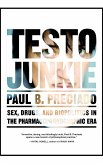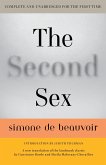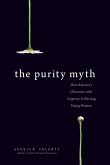Yielding is not consenting.' This may seem obvious. However, it is necessary to delineate the boundary between 'yielding' and 'consenting', as there can sometimes be a dangerous proximity between the two. Consent, in fact, always carries a risk: I can never know in advance where it will lead me. Could it be that consent paves the way for coercion? The experience of passion, the anguish in the relationship with the other, and obedience to the superego blur the boundary between consent and coercion within the subject themselves. Building on the #MeToo movement and the story of Vanessa Springora, Clotilde Leguil explores the subjective roots of consent. Through psychoanalysis, she shows that desire is not impulse and that the confrontation with coercion leaves an indelible mark. Why can't I say anything once it has happened? How can I consent again?
Hinweis: Dieser Artikel kann nur an eine deutsche Lieferadresse ausgeliefert werden.
Hinweis: Dieser Artikel kann nur an eine deutsche Lieferadresse ausgeliefert werden.








